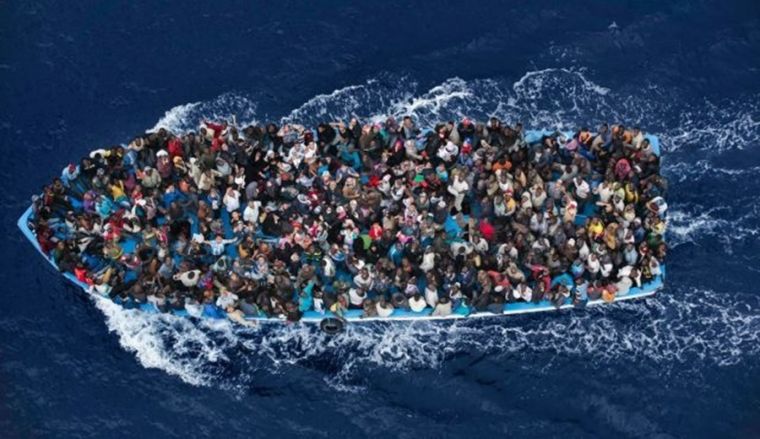Walking by on the other side: Why we can't turn away from the world's biggest crisis

You only have to walk down an aisle in the average British or American supermarket to work out how obsessed we are with shiny, new things. Our demand for novelty isn't just a feature in shops, though. It seems to seep through into many areas of life.
I recently wrote about the dangerous obsession some of us have with 'breaking' news and the desire for a 'big' story for us to digest. In it I argued that the desire to devour a breaking story can have a bad effect on us as consumers.
There's another risk, though. It's that we can't see the wood for the trees when it comes to what's truly important.
The refugee crisis should consistently be one of the top stories on news bulletins and front pages across the globe. Instead, it seems that as a society, we've half-forgotten about it. We're only reminded when something truly horrific happens.
There are reasons we've taken our eye of the ball, collectively. These are extraordinary times on both sides of the pond. President Trump's firing of FBI director James Comey is just the latest in a series of surprising and fast-moving events in Washington.
In the UK, we're in the throes of a general election and still adjusting to exactly what Brexit will mean – this is a generation-defining moment in British and European politics.
Yet, attending a refugee fundraiser this week, as I stood listening to harrowing, but inspirational stories from Greece, Serbia and other parts of the front line of the crisis the thought came clearly: we can't, we mustn't let it slip off our agenda.
The crisis remains vast.
The UN reported recently that at least 1,000 people have already died in 2017 trying to cross the Mediterranean Sea. Only a few years ago our hearts were deeply shocked by the thought of one boat capsizing. But now over a thousand lives lost in a few months barely registers.
A different UN report focused on South Sudan and reckoned that the number of child refugees from the country now numbered a million. That's in addition to the million children who are internally displaces within South Sudan. This alone is a huge crisis.
The crisis isn't just far away, of course. The impact is felt much closer to home. Today, a report suggests that: 'The Home Office reportedly ignored almost 1,600 offers from councils to take in asylum seeking children.' This prompted the Bishop of Croydon to say: 'This research reflects what we are hearing from Refugees Welcome groups across the UK: that many councils have space to take more child refugees.'
It is not hard to reach the same conclusion as Oxford Professor Alexander Betts when he writes: 'The European refugee crisis offered a test case for our policies and they failed. Thousands died.'
Yet there is hope – much of it being offered by Christian organisations. Christian Aid was set up to feed refugees in the aftermath of World War II. Chief executive Loretta Minghella, speaking ahead of Christian Aid Week next week, said: 'Today there are millions of families – mothers, fathers, children – who are running from conflict, danger and persecution around the world in search of a safe place to call home. It's time to say that they have been running long enough.'
World Vision and the World Council of Churches are calling for prayer to go alongside the aid and changes in policy that are needed to stem the flow of refugees. 'The crisis is urgent and the response must be both swift and effective,' said Chine McDonald from World Vision. 'We are urging churches throughout the UK to mobilise their members to actively pray that God releases people, finance, and aid to save lives that could otherwise be lost.'
We've got a choice. Staring in the face of the biggest refugee crisis in generations, and one of the biggest ever, we can engage with the call to prayer, giving and advocacy, or we can walk by on the other side. The crisis should be leading the news across the world. Even when it isn't, it's our responsibility to keep engaging with it and not to turn away.











